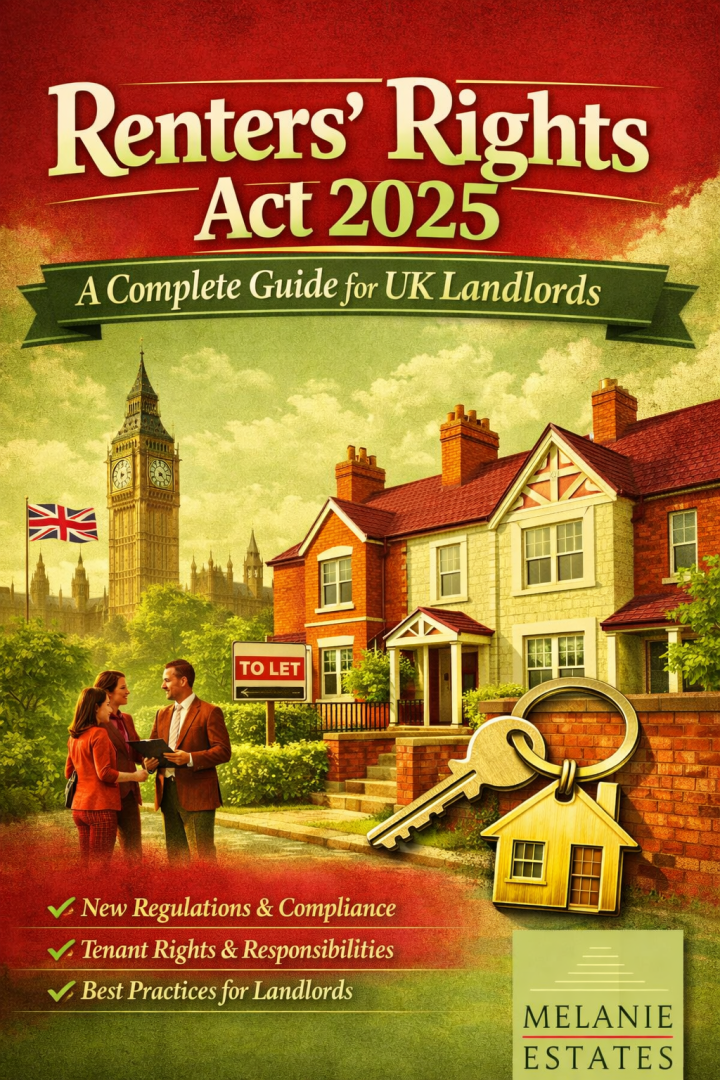Private rental sector- playing essential role in housing mobility | ||||
The governments aggressive focus on promoting individual homeownership may overlook a critical reality: not everyone wants or is able to buy a home. Some people rent because of the flexibility in provides, such as young professionals relocating for job opportunities or families adapting to changing life circumstances and most importantly students during their time at the University. For many, renting offers essential mobility, freedom from long-term financial commitments, and a way to live in areas they may not yet be able to afford to buy in or in close proximity of their University. By making it costlier and riskier for landlords to operate, Labour's policy inadvertently limits choice, shrinking the options available to those who depend on the rental market. How are they expecting student landlords to operate and plan for their business when they are about to legislate that any tenants can give 2 months notice at anytime and move, this will inevitable reduce students stocks. | ||||
Implications for Property Condition and Development | ||||
The rental sector also has in purpose in housing dynamics: Investors bring neglected and distressed properties back into use. Many properties acquired by landlords require complete renovation before it can be brought back into the rental market, some of them in extreme poor conditions that they don't even meet mortgage requirements. It is frequently investors—particularly those specializing in buy-to-let properties—who take on the cost and at a great risk of restoring these properties, turning them from near-derelict conditions into lovely rentable homes. With the increased stamp duty, fewer landlords will now be venturing into such projects, meaning that more homes could remain uninhabitable. The result? Reduced housing supply, fewer rental options, and potentially higher costs for renters, who already face tightening options and rising rents. | ||||
Reduced Entry for New Landlords and the “One-Home-Only” Policy | ||||
Labour’s stamp duty hike could also discourage new landlords from entering the rental market. For many young investors, the high upfront costs associated with property investment were already challenging; with the increased stamp duty, buy-to-let investment may now seem financially unviable. This reduced entry of new landlords exacerbates the issue, as fewer players in the market mean less competition and, ultimately, higher rents for tenants. Labour’s approach appears to support a one-home-only policy, implicitly discouraging property ownership beyond a primary residence. However, this stance doesn’t account for the diversity of housing needs across the population. By narrowing the pool of landlords willing and able to invest in rental properties, Labour risks pushing up rental prices in the long term, as demand outstrips supply in an increasingly restricted rental market. | ||||
Pet friendly policy | ||||
The governments decision to impose tenants with pets on landlord is another area of concern and enormous display of the governments ignorance of property ownership mix at a time where there are not a lot of insurance providers insuring landlords with pets and no proposed policy to mandate insurers to insure landlords taking on tenants with pets, then we have freeholders imposing no pet policy of the leaseholders, this shows that the governments is not tackling the root of the problem | ||||
Ban on Upfront rent. | ||||
Letting agents and landlords are to be prevented from asking tenants for more than one month’s rent in advance, it has been confirmed. In answer to a question from Labour MP Simon Opher in Parliament yesterday, housing minister Matthew Pennycook said he wanted to see the practice outlawed and that he was looking into ways of achieving including via an amendment to the Renters’ Rights Bill. “The Government recognize that demands for extortionate rent in advance place a considerable financial strain on tenants and can exclude certain groups from renting altogether,” he said. “We are very clear that the practice of landlords demanding large amounts…must be prohibited.” This represents yet another significant blow to the lettings industry. The Government must gain a clearer understanding of the rationale behind the practices adopted by reputable agents and landlords. To portray of some agents and landlords as simply “greedy” for requesting up to six months’ rent in advance is both misleading and a ignorance of how the rental market works, when in reality, such measures serve a very good purpose by enabling tenants who might otherwise fail referencing, to secure housing. If the Government insists on these changes, the likely outcome will be the exclusion of high-risk tenants, leaving them with fewer options. In the current housing crisis the policies of this Government will create more problems than it solves – Landlords and agents have only limited options when tenants are from high risk groups such as those who have built up rent arrears in the past or who have CCJs against them and rent in advance is one of the most commonly-used approaches. | ||||
Who Will Feel the Impact? The Tenants! | ||||
While landlords face higher costs and a more challenging investment environment, it’s the tenants who may feel the most significant impact. With fewer landlords able to offer housing, rental prices are likely to rise due to reduced supply. As demand continues to grow, especially in urban centres and high-demand areas, tenants could find themselves with fewer choices and steeper rents. Labour's budget, though intended to ease the path to homeownership, might end up reducing housing flexibility and mobility. By enacting this policy so quickly and without consideration for its ripple effects, Labour risks alienating a substantial portion of renters who rely on private landlords for affordable, flexible housing options | ||||
The Future of the Rental Market | ||||
Labour’s budget has ushered in a seismic shift for landlords and tenants alike. With heightened costs, punitive measures for new investors, and a policy focus favouring single-home ownership, the landscape for property investment and rental housing is set to change. Landlords now face a tougher climate with limited growth opportunities, while tenants may find themselves grappling with rising rents and fewer housing options. Ultimately, Labour’s immediate increase in stamp duty raises questions about the future balance between homeownership and rental housing. As the market adjusts to this policy, it will become clearer whether these changes create the intended pathway to homeownership—or if they lead to fewer choices and higher costs for tenants in an increasingly challenging rental market | ||||
| ||||
At Melanie Estates we understand the challenges landlords face in today’s ever-evolving property landscape. The upcoming Renters reform Bill will change the lettings market like we have ever seen before contact us today on 01603444251 to find out how best you can protect yourself and your assets. You will receive strategic guidance tailored to help you navigate policy changes like Labour's recent budget. Whether you’re a seasoned investor or exploring property investment for the first time, Melanie estates is here to support you with expert advice on maximising returns, managing risks, and adapting to market shifts. Reach out to our team to explore how we can help you thrive in 2025 and beyond. You can also take advantage of our early Xmas offer now to receive FREE compliance Audit of your property. You'll as well receive a FREE pack of our Super Landlord toolkit including Dettol Mould & Mildew remover, Dehumidifier and Viakal- Limescale remover and many more- Helping you keep on comply of the Renters Right Reform Bill FREE Rent Guarantee Cover | ||||
You can as well book your free no obligation consultation with our Senior Property Manager, Abbie Matthews (CeLAP) | ||||
|


 By
By 





Share this with
Email
Facebook
Messenger
Twitter
Pinterest
LinkedIn
Copy this link